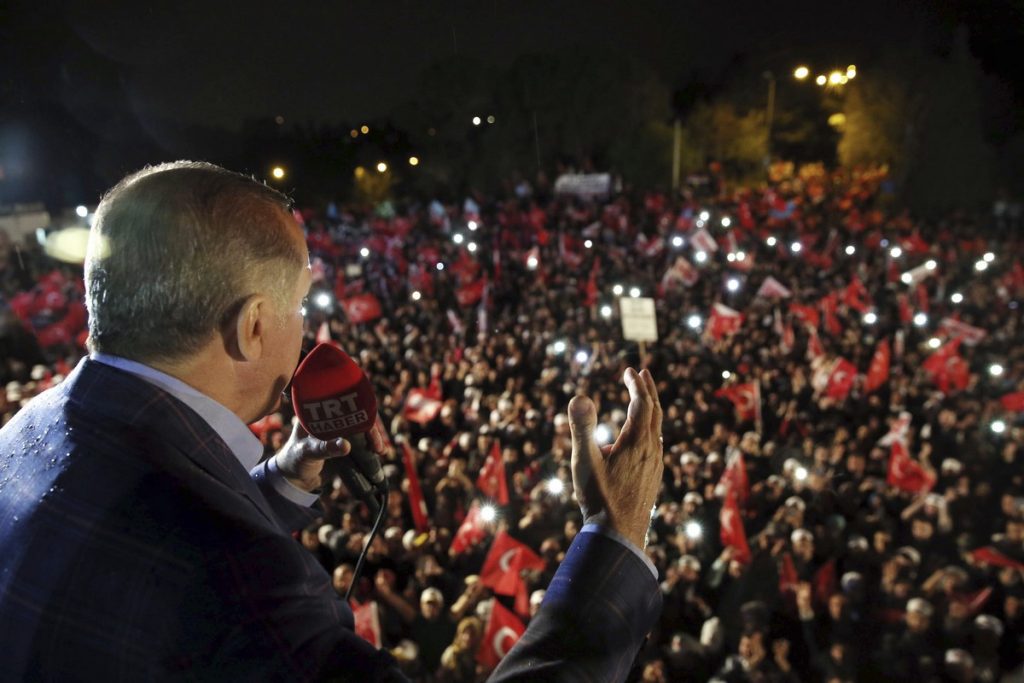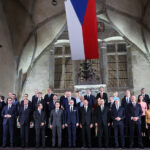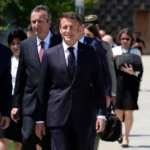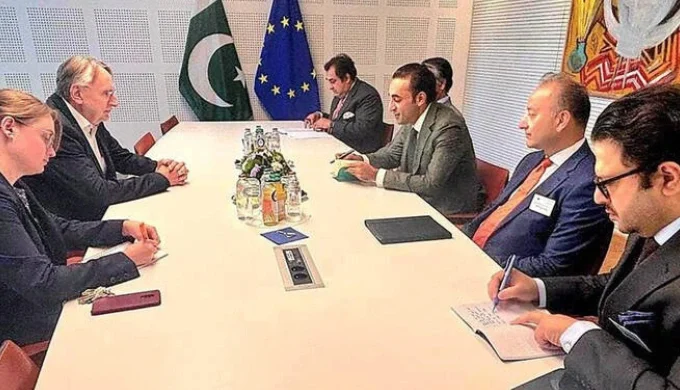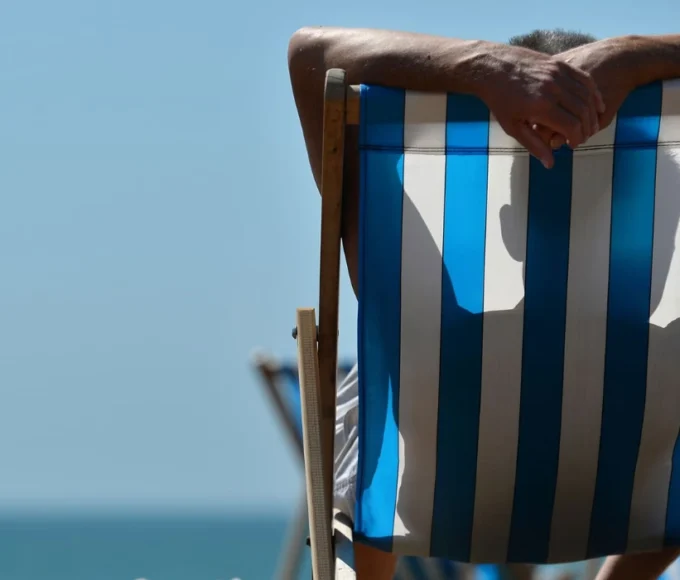Re-elected on Sunday May 28, Recep Tayyip Erdoğan extends his mandate as head of Turkey by five years. A close partner of Ankara, the European Union will have to continue the dialogue with the same interlocutor, despite the often tense relations.
Recep Tayyip Erdoğan defeated his opponent Kemal Kılıçdaroğlu with 52.16% of the vote in the second round of the Turkish presidential election on Sunday May 28. However, “there are still three weeks, before the first round […], the Europeans were considering a defeat” of the outgoing president and his party, the AKP [Le Figaro]
This re-election “represents a new challenge for the European chancelleries, while they were waiting, if not hoping, for the victory of the opposition candidate, Kemal Kiliçdaroglu, who is more favorable to a resumption of dialogue with the European Union”, considers the political scientist Nicolas Monceau in a column published by Le Monde. In short, these elections “bring to light the dilemma of Europeans facing Turkey, between the requirement of denunciation and the need for cooperation”, he summarizes. The European Union “has been watching Turkey sink into an authoritarian drift for years under the leadership of a man who dreams of being a ‘sultan’”, comments La Libre, listing the attacks on democracy by the president “who muzzled justice, the media and opposition voices”. “It was the first time in twenty years that a change was possible”, regrets a European diplomat whose remarks are reported by the daily.
For the President of the European Commission Ursula von der Leyen, however, it remains “of strategic importance for the EU and Turkey to work to advance this relationship, for the benefit of our people”, quotes Le Figaro. Despite “aggressive rhetoric, an ambiguous geopolitical position and a flirtation with Russia” [La Libre], Turkey remains “an essential interlocutor for the bloc” [Le Figaro]. Especially since it is still a candidate for European membership, “even if the negotiations have been frozen for years” [La Libre]. But the head of European diplomacy Josep Borrell warns “that there could be no ‘constructive relationship’ […] without a commitment from the Turkish authorities on ‘human rights, the rule of law, international law and regional stability’ ” [Le Figaro]. “The dilemma of Europeans is likely to last for a long time”, fears Nicolas Monceau in Le Monde.
Defense and Security
For Europeans, this dilemma focuses on “the issue of European defense in the first place”, believes the political scientist. In “the unknown landscape that accompanies the war in Ukraine, this question has become central”, confirms Le Temps.
Although a member of NATO, Ankara maintains a “proximity with Russia [which] disturbs”, notes La Libre, adding that on “many questions of foreign policy and defense, […] Turkey acts against the interests of the EU”. Over the past ten years, the Turkish president has not hesitated to “exploit[er] each of the flaws in the bloc, from migration to the relationship with Russia”, abounds Le Figaro.
“The next NATO summit [in July in Vilnius, Lithuania] will be a real test, while Turkey has been blocking Sweden’s membership for many months” [La Libre]. Recep Tayyip Erdoğan “thus accuses Sweden of harboring activists and sympathizers whom [he] considers terrorists, in particular those of the Kurdistan Workers’ Party (PKK)”, recalls France info. The Secretary General of the Atlantic Alliance, Jens Stoltenberg, however, wants to be optimistic and affirms that joining the organization is “absolutely possible” before the Vilnius summit [France info].
Turkey’s ambiguous relations with Russia also affect the field of energy. At a time when the Europeans are working on an eleventh package of sanctions against Moscow, “Turkish imports of Russian oil have increased. Some of it would even end up, via Turkey, on the European market, even though it has been banned” [La Libre]. “The energy issue will be decisive in Turkish-European relations”, writes Nicolas Monceau in Le Monde.
Migrations
“From a marginalized, even almost ignored candidate country for EU membership, Turkey has established itself as an essential interlocutor for the EU in order to manage the migration crisis” of 2015-2016 [Le Monde]. In May 2016, after the European asylum crisis, the EU concluded a deal, “offering it 6 billion euros to welcome (and keep) Syrian refugees on its soil” [La Libre].
Since then, the European Union “has always relied on Ankara to face this challenge, even if it has not succeeded in adopting a common migration policy”, continues the Belgian newspaper. Having become a real lever of pressure on the EU for Recep Tayyip Erdoğan, the limitation of migratory flows remains a “huge dependence of the EU on Ankara”, considers La Libre.
This article is originally published on touteleurope.eu


